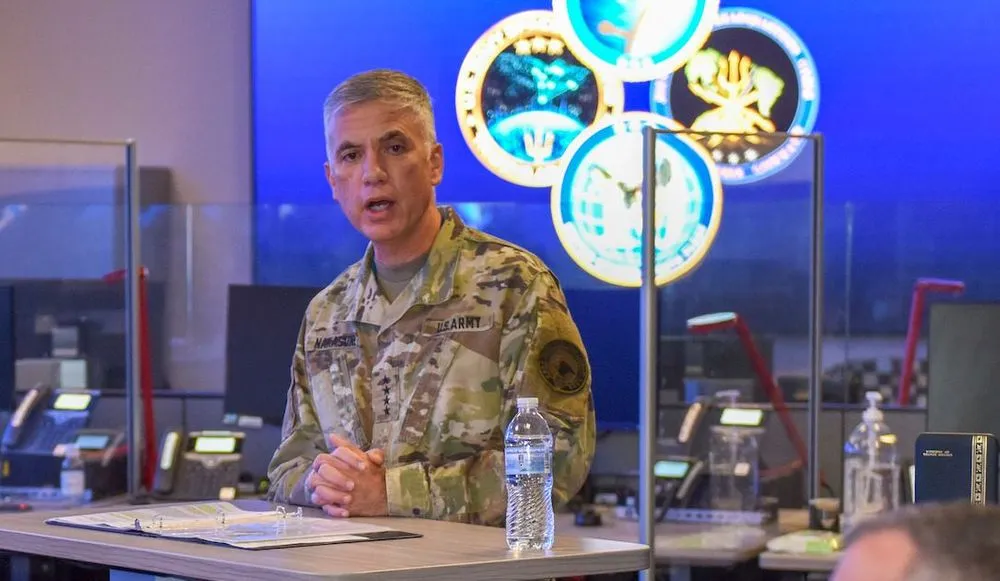One leader for Cyber Command, NSA has ‘substantial benefits,’ report says
The head of U.S Cyber Command and the National Security Agency testified Tuesday that the two entities should continue to share a leader, citing the conclusions in a recent high-level review that has yet to be shared with the public.
In written testimony to a Senate panel, Army Gen. Paul Nakasone directly quoted the review of the “dual hat” leadership structure, which has existed since Cyber Command was established in 2010.
The report found “‘substantial benefits that present compelling evidence for retaining the existing structure,’” according to Nakasone, who took over both organizations in 2018. Momentum for splitting the roles increased during the Trump administration.
The Record first reported that the Biden administration had tapped former Joint Chiefs of Staff Chairman Joseph F. Dunford Jr. to lead the review. The team concluded without a policy recommendation on maintaining or splitting the arraignment, but it leaned heavily toward keeping the two conjoined, despite long-held concerns that the positions are too much for a single person.
Nakasone also wrote that the review “highlighted” CYBERCOM and NSA’s work defending U.S. elections from foreign interference, fighting ransomware operators and bolstering the military’s other combatant commands as reasons to keep the two together.
Nakasone, one of Cyber Command’s original architects, said publicly last year that he met with Dunford’s study group and “had an opportunity to share my views.”
“Success in protecting the national security of the United States in cyberspace would be more costly and less decisive with two separate organizations under two separate leaders,” Nakasone wrote in his testimony for the Senate Armed Services Committee.
“The enduring relationship is vital for both organizations to meet the strategic challenges of our adversaries as they mature their capabilities against the United States,” he added.
Martin Matishak
is the senior cybersecurity reporter for The Record. Prior to joining Recorded Future News in 2021, he spent more than five years at Politico, where he covered digital and national security developments across Capitol Hill, the Pentagon and the U.S. intelligence community. He previously was a reporter at The Hill, National Journal Group and Inside Washington Publishers.



